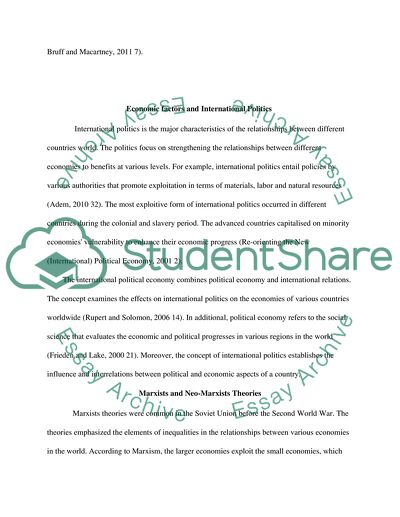Cite this document
(“The Importance of Economic Factors in International Politics in Essay”, n.d.)
Retrieved from https://studentshare.org/social-science/1678747-the-importance-of-economic-factors-in-international-politics-in-marxism-and-neomarxism
Retrieved from https://studentshare.org/social-science/1678747-the-importance-of-economic-factors-in-international-politics-in-marxism-and-neomarxism
(The Importance of Economic Factors in International Politics in Essay)
https://studentshare.org/social-science/1678747-the-importance-of-economic-factors-in-international-politics-in-marxism-and-neomarxism.
https://studentshare.org/social-science/1678747-the-importance-of-economic-factors-in-international-politics-in-marxism-and-neomarxism.
“The Importance of Economic Factors in International Politics in Essay”, n.d. https://studentshare.org/social-science/1678747-the-importance-of-economic-factors-in-international-politics-in-marxism-and-neomarxism.


